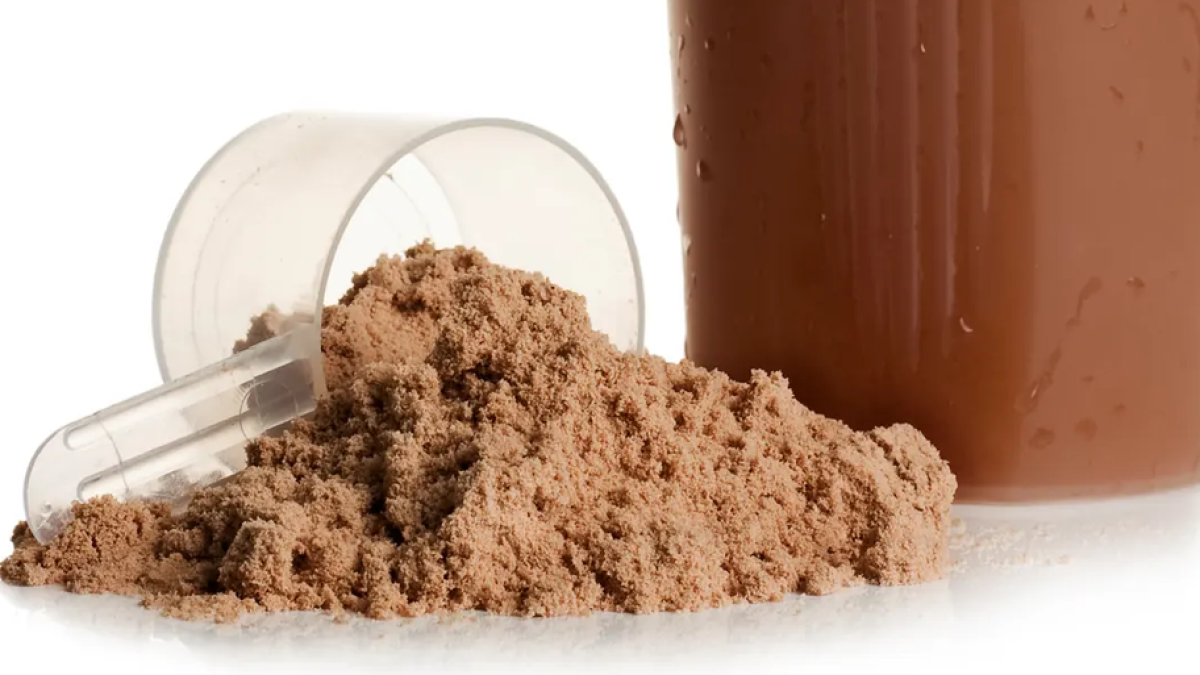What is Whey Protein Powder?
Whey protein is the protein from whey, the watery portion of milk that separates from the curds when making cheese. It is commonly used as a protein supplement.
Whey protein might improve the nutrient content of the diet and also have effects on the immune system.
People commonly use whey protein for improving athletic performance and increasing strength. Whey protein is also used for asthma, diabetes, weight loss, and many other conditions, but there is no good scientific evidence to support most of these uses.
Possibly Effective for
Athletic performance. Regularly consuming whey protein by mouth while also regularly exercising increases muscle strength and athletic performance. But it seems that both must be done consistently to see benefits.
Possibly Ineffective for
A lung disease that makes it harder to breathe (chronic obstructive pulmonary disease or COPD). Taking whey protein by mouth doesn't seem to help COPD symptoms.
Weak and brittle bones (osteoporosis). Taking whey protein by mouth for up to 2 years doesn't improve bone density in older adults.
There is interest in using whey protein for a number of other purposes, but there isn't enough reliable information to say whether it might be helpful.
Benefits of Whey Protein Powder
It’s well known that protein can aid weight loss, as it’s by far the most satiating macronutrient.
Protein can boost energy expenditure by 80–100 calories per day, and make people automatically eat up to 441 fewer calories per day.
In one study, eating 25% of the daily calories in protein cut cravings by 60% and reduced the desire for late-time snacking by half.
Taking whey protein is a great way to increase your protein intake, which should have major benefits for weight loss.
Studies have shown that replacing other sources of calories with whey protein, combined with weight lifting, can cause weight loss of about 8 pounds (3.5 kg) while increasing lean muscle mass.
If you’re trying to lose weight, a whey protein supplement can help you both lose weight and hold on to your muscle.
Whey is more than just a high-quality protein source, it also contains other beneficial nutrients.
This includes lactoferrin, beta-lactoglobulin, alpha-lactalbumin and immunoglobulins.
Beyond just muscle, strength and leanness, whey protein may provide numerous other health benefits.
This includes lowering blood pressure, blood sugar and reducing symptoms of stress and depression.
It also protects against cancer, reduces symptoms of hepatitis, increases bone mineral density, improves immune function in HIV patients and increases the lifespan of mice.
The fact that whey protein is very high in the amino acid cysteine seems to mediate many of these health benefits. Cysteine does this by raising levels of glutathione, the main antioxidant substance in your body’s cells.

Does Whey Protein lower blood pressure?
Abnormally high blood pressure (hypertension) is one of the leading risk factors for heart disease.
Numerous studies have linked the consumption of dairy products with reduced blood pressure.
This effect has been attributed to a family of bioactive peptides in dairy, so-called angiotensin-converting-enzyme inhibitors.
In whey proteins, the ACE-inhibitors are called lactokinins. Several animal studies have demonstrated their beneficial effects on blood pressure.
A limited number of human studies have investigated the effect of whey proteins on blood pressure, and many experts consider the evidence to be inconclusive.
One study in overweight individuals showed that whey protein supplementation, 54 g/day for 12 weeks, lowered systolic blood pressure by 4%. Other milk proteins (casein) had similar effects.
This is supported by another study that found significant effects when participants were given whey protein concentrate (22 g/day) for 6 weeks.
However, blood pressure decreased only in those that had high or slightly elevated blood pressure to begin with.
No significant effects on blood pressure were detected in a study that used much lower amounts of whey protein (less than 3.25 g/day) mixed in a milk drink.



A wonderful serenity has taken possession of my entire soul, like these sweet mornings of spring which I enjoy with my whole heart. I am alone, and feel the charm of existence in this spot, which was created for the bliss of souls like mine. I am so happy.
I feel that I never was a greater artist than now. When, while the lovely valley teems with vapour around me, and the meridian sun strikes the upper surface of the impenetrable foliage of my trees, and but a few stray gleams steal into the inner sanctuary.
A wonderful serenity has taken possession of my entire soul, like these sweet mornings of spring which I enjoy with my whole heart. I am alone, and feel the charm of existence in this spot, which was created for the bliss of souls like mine. I am so happy.
my dear friend, so absorbed in the exquisite sense of mere tranquil existence, that I neglect my talents.
I feel that I never was a greater artist than now. When, while the lovely valley teems with vapour around me, and the meridian sun strikes the upper surface of the impenetrable foliage of my trees, and but a few stray gleams steal into the inner sanctuary.